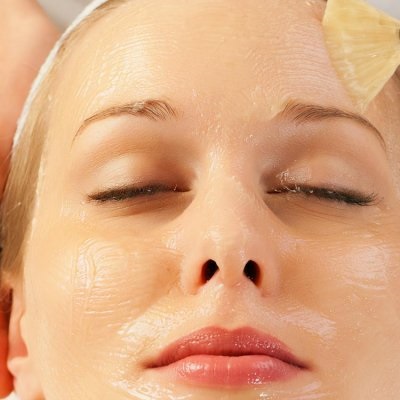When it comes to achieving clear, radiant skin, many individuals find themselves deciding between two popular skincare treatments: chemical peels and facials. Both aim to rejuvenate the skin, remove impurities, and improve complexion, but they differ significantly in method, intensity, and long-term benefits. Understanding these differences is essential, especially if you’re considering treatments like chemical peels in Islamabad to address deeper skin concerns. Whether you’re battling acne, signs of aging, or pigmentation, the right treatment depends on your goals and skin type.
Table of Contents
ToggleWhat Is a Facial?
A facial is a multi-step skincare procedure designed to cleanse, exfoliate, and nourish the skin. It typically includes steam, manual or enzymatic exfoliation, extractions, massage, and the application of masks and moisturizers. Facials are highly customizable and are often used to maintain healthy skin and provide a relaxing experience.
Facials can be done in a spa, beauty salon, or dermatology clinic. Depending on your skin type and condition, various types of facials can be recommended, such as:
-
Hydrating facials
-
Acne facials
-
Anti-aging facials
-
Brightening facials
While facials offer instant results such as glowing and hydrated skin, they primarily work on the surface layers and are best for maintenance rather than correction.
What Is a Chemical Peel?
A chemical peel is a more intensive dermatological treatment that uses acid-based solutions to exfoliate the top layers of the skin. The solution removes damaged skin cells and stimulates new cell growth, revealing fresher, more even-toned skin underneath.
Chemical peels are categorized based on their depth:
-
Superficial peels (e.g., glycolic or salicylic acid) treat mild discoloration and rough skin.
-
Medium-depth peels (e.g., TCA peels) improve acne scars, fine lines, and moderate pigmentation.
-
Deep peels (e.g., phenol peels) target severe wrinkles and sun damage, with longer downtime.
Because they penetrate deeper than facials, chemical peels provide more dramatic and lasting results, especially for those struggling with persistent skin issues.
Key Differences Between Chemical Peels and Facials
1. Purpose and Benefits
-
Facials are primarily for general skin maintenance, hydration, and relaxation. They help remove surface dirt, oil, and minor dead skin buildup, making the skin feel clean and refreshed.
-
Chemical peels target specific skin conditions like acne scars, hyperpigmentation, and fine lines. They exfoliate more aggressively, encouraging cell turnover and collagen production.
2. Treatment Intensity
-
Facials are gentle, non-invasive, and suitable for monthly upkeep.
-
Chemical peels are more intense and can involve redness, peeling, and temporary discomfort, depending on the peel’s strength.
3. Downtime and Recovery
-
After a facial, there’s little to no downtime. You can resume daily activities immediately.
-
Chemical peels, especially medium and deep ones, may require several days to a week for the skin to heal. Flaking, redness, and sensitivity are common during this period.
4. Results and Longevity
-
Facials offer immediate but short-term improvements, like a refreshed glow and softer texture.
-
Chemical peels deliver more noticeable and longer-lasting results by treating underlying skin issues.
5. Skin Concerns Addressed
Facials are ideal for:
-
Hydration
-
Mild congestion
-
Temporary dullness
-
General skincare maintenance
Chemical peels are effective for:
-
Acne and acne scars
-
Sun damage and pigmentation
-
Uneven skin tone
-
Fine lines and wrinkles
-
Textural irregularities
When to Choose a Facial
Facials are a great starting point if you’re new to skincare treatments or want a quick boost before an event. They’re also recommended for those with sensitive skin who might not tolerate stronger treatments. Regular facials can help prevent breakouts, improve circulation, and maintain a youthful appearance.
When to Opt for a Chemical Peel
If you’re dealing with more severe concerns like melasma, deep acne scars, or visible aging signs, chemical peels are a better choice. A dermatologist can recommend the right peel based on your skin’s needs and tolerance level. While a single peel may show results, a series of treatments is often recommended for optimal outcomes.
Can You Combine Both Treatments?
Yes, many skincare routines incorporate both facials and chemical peels. For example, one might get a chemical peel every few months to target deeper issues and use monthly facials for maintenance in between. However, it’s important not to schedule both too close together to avoid over-exfoliation. Always consult with a skincare expert to space treatments appropriately and ensure the right balance for your skin type.
Comparing Side Effects
Facials may cause minor redness or sensitivity if extractions are involved, but side effects are generally minimal.
Chemical peels may result in:
-
Flaking and peeling
-
Temporary redness or swelling
-
Increased sun sensitivity
-
Risk of hyperpigmentation (if not cared for properly)
Post-peel care is essential to avoid complications and ensure effective healing.
Post-Treatment Care
After a facial:
-
Avoid harsh products for 24–48 hours.
-
Continue regular skincare with gentle products.
After a chemical peel:
-
Use gentle cleansers and hydrating products.
-
Avoid sun exposure and always wear sunscreen.
-
Don’t pick at flaking skin.
Following these guidelines helps maintain results and protects your skin from irritation or damage.
Professional vs. DIY
While DIY facials and over-the-counter exfoliants are common, professional treatments always offer better customization and safety. Chemical peels, in particular, should always be performed under the supervision of a trained dermatologist to minimize risks and maximize results.
Final Thoughts
Both facials and chemical peels serve valuable purposes in skincare, but they’re not interchangeable. Facials provide regular maintenance, hydration, and relaxation, while chemical peels are more targeted treatments for long-term skin improvement. Your choice depends on your goals, budget, and how aggressive you want your skincare strategy to be.
If you’re considering chemical peels in Islamabad, it’s essential to consult with a qualified expert who can evaluate your skin and recommend the ideal solution. For the best in skincare expertise and personalized treatment plans, visit the SKN Cosmetics clinic where trained professionals are dedicated to helping you achieve clear, healthy, and rejuvenated skin.
